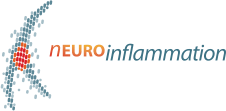Early Stage Researchers

What is your project/research about?
My project is about dendritic cells and it aims to elucidate the role these cells may play in the inflammatory environment that generates after ischemic stroke in the brain. We want to study the time course of entrance of these cells in the brain after stroke, to get a hold on the numbers and timing of action of these cells. In addition, genetic depletion of the dendritic cell population (or of specific subpopulations) or their pharmacological expansion will allow us to study their function and their influence on the outcome of cerebral ischemia in mice.
Why did you apply for a Marie Curie ITN and especially this project?
I applied for a Marie Curie ITN because they are fellowships known for their prestige and funding opportunity. The possibility of working in such a big network with world-class experts and enthusiastic fellows is something you cannot let pass by. After the master’s degree, I was up for a challenge and I found this to be a very intriguing one. This project I specifically applied for was particularly interesting because it deals with ischemic stroke, in which I got interested already during my master’s, but gave me the opportunity to move more towards the neuroimmunology field, where neuroscience and immunology meet, creating complex but fascinating new questions to be answered. I did not know about the trainings and the meetings and all the other activities that we were going to be part of as ESRs but it was a very pleasant surprise once I got into the program!
What is so fascinating for you on research in general?
What fascinates me most about research is that it is a never-ending journey. Every time we discover or understand something, something more comes out needing to be studied and explained. I started studying biotechnology and then went on doing research applying for this fellowship because I wanted to do something new, I wanted to contribute in pushing the knowledge a little bit forward in this travel. I didn’t want to just study something someone else did or invented or discovered. Will I be able to do it? I don’t know. I will try my best for sure.
What do you do in your free time?
Research takes a lot of time, leaving few hours a day for free time (I try to sleep at night). I try to make the best out of it by staying with people who make me feel good, doing things I like. After some good ordinary rest, I enjoy practicing sports (but I should engage more into it!) and I love eating good food (that’s why I should engage more in sports). I really like tasting cuisines from all over the world, even though my home country has the best one of all. As regards my interests, I am a tech guy. I like keeping updated about the latest techs and gadgets, mostly by reading news but when possible also by handling them myself.
What are your plans for your future?
My short time plan is to try to make something good out of this fellowship and my PhD studies, putting at good use what I learnt so far. The more distant future looks at the same time so close and so far, that making plans gets hard. I would like to continue doing research, possibly in the neuroimmunology field but who knows if I will be able to? Time will tell.
Regarding our meetings:
Our network meetings have always been very nice moments to share our advancements (or lack of) with peers and supervisors, who always have good words of advice. The friendly environment we were always able to create allowed everybody to enjoy these moments and make the most out of them. The training courses and workshops were always interesting and useful –some of them more, some a little less. I don’t have a favourite workshop but I remember good ones such as statistics, project management, or the transferable skills ones by Dr. Gommel. In summary, I always felt I went home with something more after our get-togethers.


